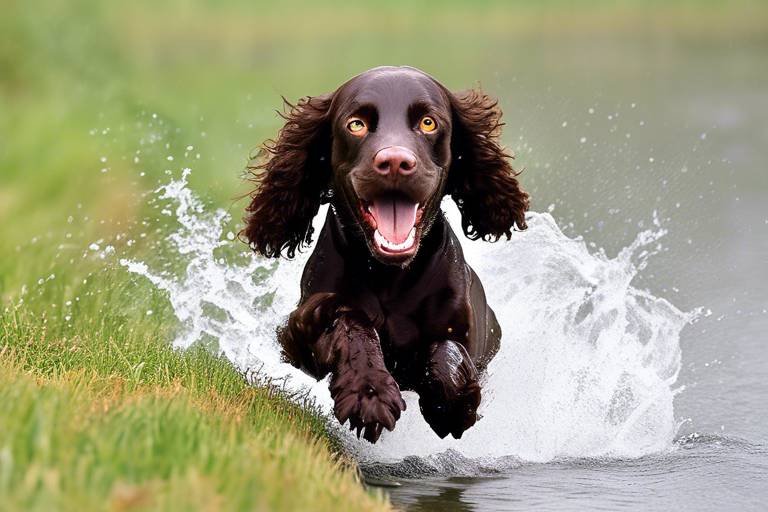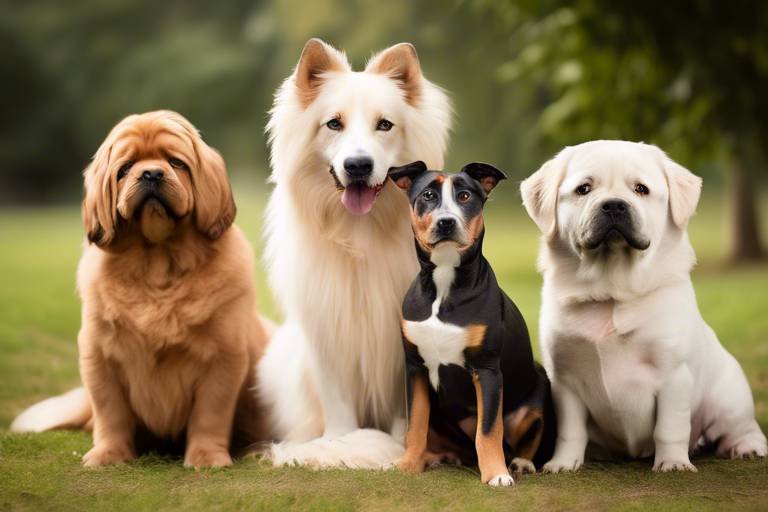The Characteristics of the Golden Retriever - Why They’re Beloved
Golden Retrievers, with their sunny dispositions and captivating charm, have secured a special place in the hearts of dog lovers around the world. These dogs are not just pets; they are family members, companions, and sometimes even heroes. Their friendly nature and gentle temperament make them ideal for families, individuals, and everyone in between. Imagine coming home after a long day, and there they are, wagging their tails, ready to shower you with unconditional love. Isn’t that what we all crave? This article delves into the unique traits that make Golden Retrievers so adored, from their sociable personalities to their incredible intelligence and loyalty.
Golden Retrievers are often described as the epitome of friendliness. Their gentle nature and affectionate demeanor create an environment where everyone feels welcomed. They thrive on human interaction and are known for their playful spirit. Whether it’s playing fetch in the park or cuddling on the couch, these dogs are always up for some fun. Their sociable personality makes them excellent companions for families, as they often form strong bonds with children and adults alike. Just picture a Golden Retriever playing gently with kids, their tails wagging in pure joy—it's a heartwarming sight!
One of the standout traits of Golden Retrievers is their remarkable intelligence. They are not just good-looking; they are also incredibly smart! This breed is highly trainable, eager to please, and quick to learn commands. This eagerness to learn is a key reason why they excel in various roles, including as service dogs. Imagine a Golden Retriever assisting someone with a disability, effortlessly following commands and providing support. It’s a testament to their intelligence and willingness to help.
Obedience training is essential for Golden Retrievers. Their natural inclination to follow commands makes them relatively easy to train. However, training isn’t just about learning commands; it’s about building a relationship. When you train your Golden, you’re not just teaching them to sit or stay; you’re enhancing your bond. This connection is vital in ensuring that they become well-behaved pets, ultimately enhancing their relationships with their owners and ensuring safety in various environments.
Utilizing positive reinforcement techniques can significantly improve training outcomes. Reward-based methods, such as treats or praise, encourage good behavior and strengthen the bond between the dog and owner. Imagine the joy on your Golden Retriever’s face when they receive a treat for a job well done! This approach not only makes training a joyful experience but also fosters a trusting relationship between you and your furry friend.
Socialization is crucial for Golden Retrievers. Early exposure to diverse environments, people, and other animals helps them develop into well-adjusted adults. Think of socialization as giving your Golden Retriever a toolkit for life. The more experiences they have, the better they can handle new situations without anxiety. A well-socialized Golden is a happy Golden, ready to interact with the world around them.
Golden Retrievers often serve as therapy and service dogs due to their gentle demeanor and intelligence. Their ability to connect with people makes them invaluable in various therapeutic settings. Whether it’s visiting hospitals to cheer up patients or assisting individuals with disabilities, these dogs have a unique gift for providing comfort and support. Their presence alone can lift spirits and create a sense of calm.
Golden Retrievers are known for their striking appearance, featuring a dense, water-repellent coat and an athletic build. Their physical traits contribute to their versatility in various activities and environments. With their luscious golden fur glistening in the sun, they truly are a sight to behold. But it’s not just about looks; their physical characteristics also play a role in their energy levels and activity needs.
The beautiful golden coat requires regular grooming to prevent matting and reduce shedding. Understanding their grooming needs is essential for maintaining their health and appearance. Regular brushing not only keeps their coat looking fabulous but also provides an opportunity for bonding. Plus, who doesn’t love a good grooming session with their furry friend? It’s a win-win!
Golden Retrievers are energetic and active dogs that require regular exercise. Daily walks, playtime, and mental stimulation are crucial for their overall well-being. Think of exercise as a way to keep your Golden happy and healthy. A tired dog is a well-behaved dog! Without adequate physical activity, they can become bored and develop behavioral issues. So, grab that leash and hit the park—your Golden will thank you!
Like all breeds, Golden Retrievers are prone to specific health conditions. Being aware of these potential issues can help owners take proactive measures to ensure their pet's long-term health and happiness. Regular vet check-ups, a balanced diet, and proper exercise can go a long way in keeping your furry friend healthy. After all, a healthy dog is a happy dog!
- What is the average lifespan of a Golden Retriever?
The average lifespan is around 10 to 12 years. - Are Golden Retrievers good with children?
Yes, they are known for their gentle and friendly nature, making them excellent companions for kids. - How much exercise do Golden Retrievers need?
They require at least an hour of exercise each day to stay healthy and happy. - Do Golden Retrievers shed a lot?
Yes, they do shed, especially during seasonal changes, so regular grooming is essential.
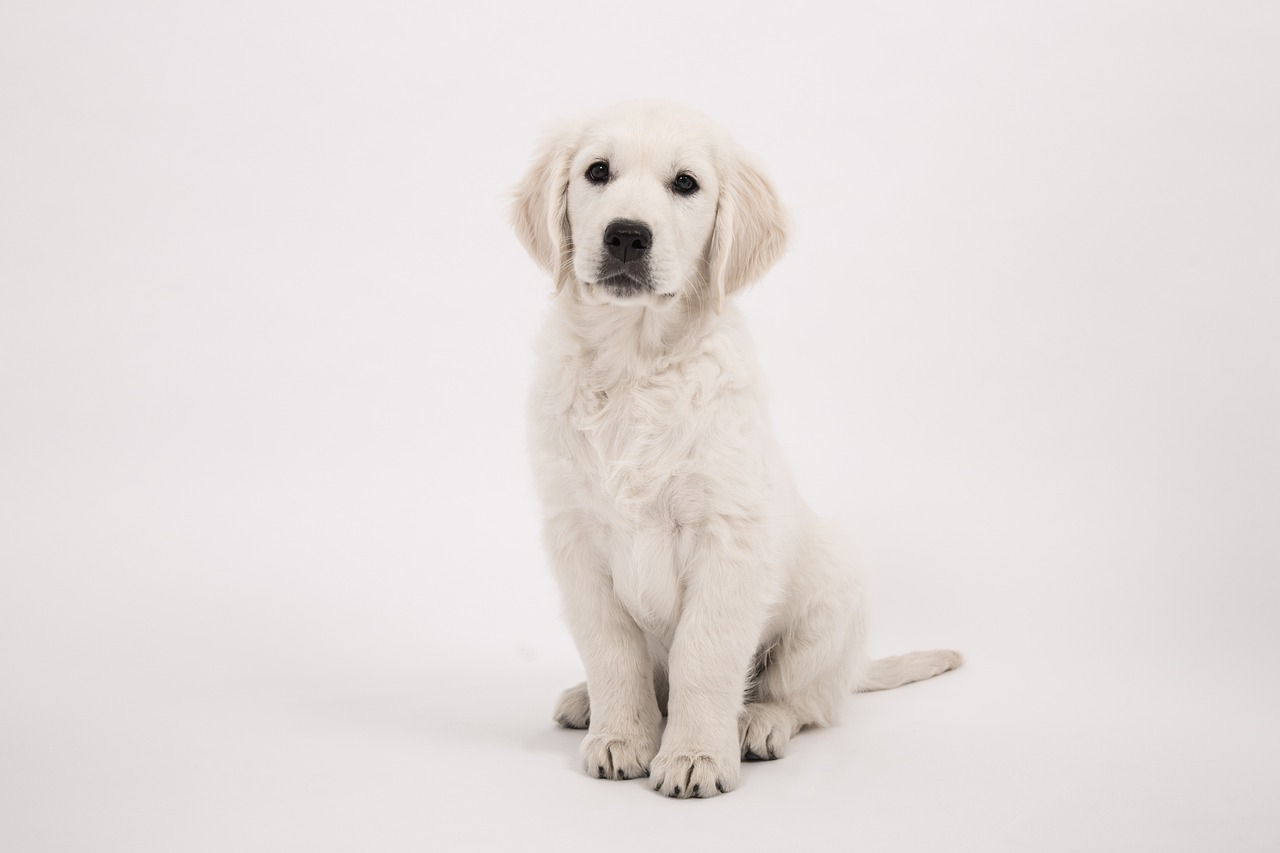
Temperament and Personality
Golden Retrievers are often described as the epitome of friendliness. Their gentle and sociable nature makes them one of the most beloved dog breeds around the world. Imagine coming home after a long day, and as soon as you open the door, you’re greeted by an exuberant wagging tail and a face full of joy—that’s the magic of a Golden Retriever! They thrive on human interaction and are often considered family members rather than just pets.
This breed is known for its affectionate demeanor. They are incredibly loyal and form strong bonds with their humans, often following them from room to room as if they were their shadows. Their warm-hearted personality allows them to get along with children, making them an ideal choice for families. In fact, their gentle nature means they are often patient and forgiving, even when a toddler pulls on their ears or tries to climb on their back.
Golden Retrievers also possess a natural curiosity about the world around them. They are playful and love engaging in activities that stimulate their minds. Whether it’s a game of fetch, a swim in the lake, or simply exploring the backyard, their enthusiasm is contagious. This innate curiosity leads them to be excellent companions for outdoor adventures, as they are always ready to join in on the fun.
Moreover, their temperament can be characterized as adaptable. Golden Retrievers can thrive in various living situations, whether it’s a bustling family home or a more tranquil environment. Their ability to adjust to different lifestyles makes them highly sought after. However, this adaptability also means they require regular interaction and mental stimulation to keep their spirits high. A bored Golden Retriever can quickly turn into a mischievous one, so it’s essential to keep them engaged.
In summary, the temperament and personality of Golden Retrievers make them truly special. Their combination of affection, loyalty, and playfulness creates an unbreakable bond with their owners. They are not just pets; they are companions who bring joy, laughter, and a sense of fulfillment to our lives. If you’re looking for a dog that will shower you with love and always be by your side, a Golden Retriever might just be the perfect choice!
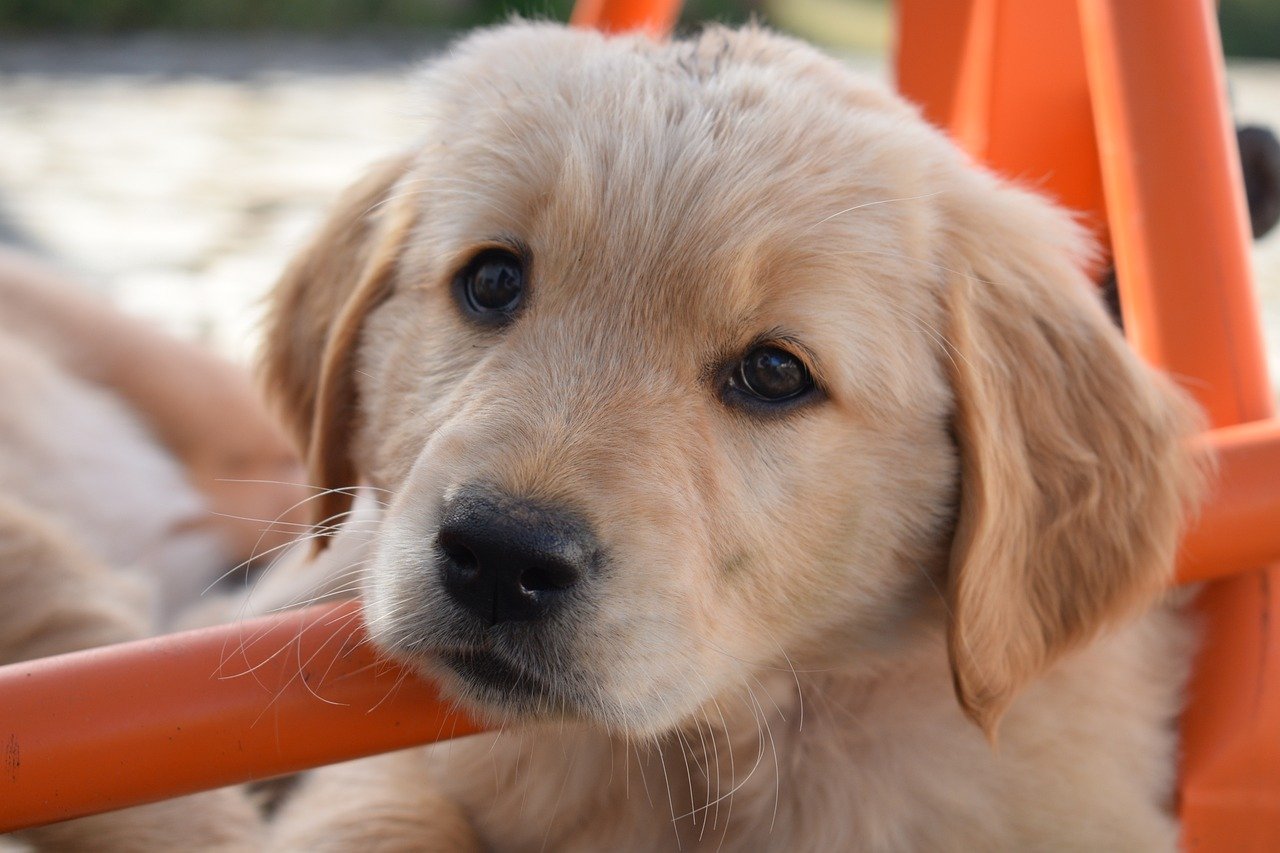
Intelligence and Trainability
When it comes to dog breeds, Golden Retrievers stand out as one of the most intelligent and trainable companions you could ever wish for. This breed is not only eager to please but also possesses a remarkable ability to learn commands quickly. Imagine having a furry friend who seems to understand your needs almost intuitively! Their intelligence is a double-edged sword; while it makes them easy to train, it also means they need mental stimulation to keep them engaged and happy. You wouldn’t want a bored Golden Retriever, as that’s when mischief can creep in!
One of the key reasons Golden Retrievers excel in various roles, including service and therapy dogs, is their trainability. Whether it’s fetching a ball or performing complex tasks, their quick learning capabilities are truly impressive. In fact, they often rank among the top breeds in intelligence tests. This natural aptitude for learning makes them ideal candidates for obedience training. A well-trained Golden Retriever can be a joy to have around, as they are not only obedient but also exhibit excellent manners.
Obedience training is essential for Golden Retrievers. Their willingness to learn and follow commands helps them become well-behaved pets, enhancing their relationships with owners and ensuring safety in various environments. Imagine taking your dog to the park and having them come back to you on command, or sitting quietly while you chat with friends. These moments are made possible through consistent training. While every dog is unique, Golden Retrievers tend to thrive on routine and structure, making them responsive to training sessions.
Utilizing positive reinforcement techniques can significantly improve training outcomes. Rather than relying on harsh methods, rewarding your Golden Retriever for good behavior fosters a loving and supportive environment. Think of it this way: when you get a compliment at work, you feel motivated to do even better. The same concept applies to dogs. By using treats, praise, or playtime as rewards, you encourage your Golden to repeat the desired behaviors. This not only makes training more effective but also strengthens the bond between the dog and owner, turning the learning process into a joyful experience for both parties.
Socialization is crucial for Golden Retrievers. Early exposure to diverse environments, people, and other animals helps them develop into well-adjusted adults. Think of socialization as a form of education for your furry friend. Just like children, dogs benefit from learning how to interact with others. Golden Retrievers that are well-socialized are less likely to experience anxiety or fear in new situations. Taking your pup to the dog park, introducing them to new friends, or even going on different adventures can help them become more adaptable and friendly.
Golden Retrievers often serve as therapy and service dogs due to their gentle demeanor and intelligence. Their ability to connect with people makes them invaluable in various therapeutic settings. Whether they are providing comfort to a child in a hospital or assisting someone with disabilities, their presence can make a world of difference. It’s no wonder that these dogs are often seen as a beacon of hope and joy in challenging times. Their training not only reflects their intelligence but also showcases their innate ability to empathize and support those in need.
Obedience Training
When it comes to for Golden Retrievers, the journey is as rewarding as it is essential. These dogs are not just pets; they are family members who thrive on structure and guidance. Imagine a well-trained Golden Retriever as the perfect dance partner—responsive, eager, and in sync with your every move. Their natural eagerness to please makes them exceptionally receptive to training, which is why starting early is key. The earlier you begin, the more you’ll tap into their potential to become well-mannered companions.
Golden Retrievers respond best to positive reinforcement techniques. This involves rewarding desired behaviors with treats, praise, or playtime, which not only encourages good habits but also strengthens the bond between you and your furry friend. Think of it as a game where both of you are winners! For instance, when your pup sits on command, a simple “Good boy!” and a treat can turn that moment into a celebration. This method not only builds their confidence but also makes training sessions enjoyable.
It’s important to remember that consistency is crucial. Dogs thrive on routine, so establishing a regular training schedule can help reinforce their learning. For example, setting aside 15-20 minutes each day for training can yield significant results over time. During these sessions, focus on basic commands such as sit, stay, and come. These foundational commands will serve as the building blocks for more advanced training later on.
Moreover, socialization plays a vital role in obedience training. Exposing your Golden Retriever to various environments, people, and other animals helps them learn appropriate behaviors and reduces anxiety. Picture this: a friendly Golden Retriever, well-versed in commands, confidently navigating a busy park with its owner. That’s the power of good training and socialization working hand in hand!
In conclusion, obedience training is not just about teaching commands; it’s about fostering a relationship built on trust and respect. With their intelligence and friendly nature, Golden Retrievers are more than capable of mastering obedience training. As you embark on this journey, remember to be patient and celebrate the small victories along the way. After all, every wag of their tail is a sign of appreciation for your efforts!
- How long does it take to train a Golden Retriever? Training duration can vary, but with consistency, you can expect to see basic command mastery within a few weeks.
- What is the best age to start training? Starting at around 8 weeks old is ideal, as puppies are more receptive to learning during this period.
- Can Golden Retrievers be trained off-leash? Yes, with proper training and socialization, many Golden Retrievers can be trusted off-leash in safe environments.
- What should I do if my Golden Retriever is not responding to commands? Ensure you’re using positive reinforcement and remain patient. It may also help to consult a professional trainer for additional guidance.
Positive Reinforcement Techniques
When it comes to training your Golden Retriever, are the golden ticket to success. This approach focuses on rewarding desirable behaviors rather than punishing unwanted ones. Think of it as a way to create a fun and engaging learning environment for your furry friend. Instead of saying "no" all the time, you can say "yes" with treats, praise, or playtime, making your dog eager to learn and please you.
One of the primary reasons why Golden Retrievers thrive with positive reinforcement is their innate desire to please. They are incredibly social and want to make their humans happy. By using rewards like tasty treats or enthusiastic verbal praise, you can effectively communicate what behaviors you want to encourage. For instance, when your Golden sits on command, offering a treat not only reinforces that behavior but also strengthens the bond between you two. It's like saying, "You did great, buddy! Let's do it again!"
Moreover, consistency is key in this training method. Dogs thrive on routine, and if you consistently reward good behavior, your Golden will quickly learn what actions lead to positive outcomes. For example, if your dog barks at the mailman, instead of scolding them, redirect their attention and reward them when they remain calm. This not only teaches them the desired behavior but also helps reduce anxiety and aggression.
Here’s a quick breakdown of how to implement positive reinforcement effectively:
- Timing is Everything: Reward your dog immediately after they perform the desired action. This helps them associate the behavior with the reward.
- Use High-Value Treats: Choose treats that your dog absolutely loves. This increases motivation and makes training sessions more enjoyable.
- Keep Sessions Short: Golden Retrievers have short attention spans, so keep training sessions brief but frequent to maintain their interest.
- Mix It Up: Vary the rewards to keep your dog engaged. Sometimes use treats, other times praise, or even a favorite toy.
Incorporating positive reinforcement into your Golden Retriever's training routine not only helps them learn commands but also makes the process enjoyable for both of you. You'll find that your dog is more willing to participate and eager to show off their new skills. Plus, this method fosters a sense of trust and respect between you and your pet, creating a deeper bond that lasts a lifetime.
Q: How long does it take to train a Golden Retriever using positive reinforcement?
A: Training time can vary based on the individual dog and the complexity of the commands. However, with consistent practice and positive reinforcement, most Golden Retrievers can learn basic commands within a few weeks.
Q: What if my Golden Retriever is not motivated by treats?
A: Not all dogs are food-motivated. If your Golden isn't interested in treats, try using toys, praise, or playtime as rewards. Find what excites your dog the most!
Q: Can I use negative reinforcement in training?
A: While some trainers use negative reinforcement, it can lead to fear and anxiety in dogs. Positive reinforcement is generally more effective and fosters a healthier relationship between you and your pet.
Q: How can I tell if my Golden Retriever is enjoying the training?
A: Signs that your dog is enjoying training include wagging their tail, playful behavior, and eagerness to participate. If they seem stressed or disinterested, it may be time to adjust your approach.
Socialization Skills
When it comes to Golden Retrievers, socialization is not just a bonus—it's a necessity! Imagine a world where your furry friend feels comfortable and confident in any situation, from bustling parks to quiet cafes. Early and consistent socialization helps achieve this, allowing your Golden to interact positively with various people, animals, and environments. This breed thrives on being around others, and their friendly disposition makes them naturally inclined to seek out new friends. However, without proper socialization, even the most amiable Golden Retriever can develop anxiety or fear in unfamiliar settings.
Starting socialization during their puppy stage is crucial. Exposing them to different sights, sounds, and experiences can shape their behavior for life. For instance, introducing them to various types of people—children, elderly, and those wearing hats or sunglasses—can help reduce the chance of fear-based reactions later on. Think of it like teaching a child about the world; the more they see, the more they understand, and the less they fear. This exposure can be done through puppy classes, playdates with other dogs, or simply taking walks in different neighborhoods.
Moreover, Golden Retrievers are incredibly intuitive. They pick up on their owner's emotions, and a well-socialized dog often mirrors their owner's calm demeanor. If you're relaxed and confident, your Golden is likely to feel the same way. This bond not only enhances their social skills but also strengthens the relationship between you and your pet. Imagine walking into a crowded area with your Golden by your side, both of you radiating confidence and joy—it's a beautiful sight!
To further enhance their social skills, consider the following tips:
- Expose them to different environments: Parks, beaches, and busy streets.
- Encourage interactions with other dogs: Dog parks or playdates can be great.
- Introduce them to varied people: Friends, family, and even strangers can help.
- Utilize positive reinforcement: Reward them for calm behavior around new experiences.
In conclusion, socialization is a vital part of raising a well-rounded Golden Retriever. It not only helps them become friendly and confident but also enhances their ability to adapt to various situations. By investing time in their social development, you're setting the stage for a happy, healthy, and well-adjusted companion who can enjoy life to the fullest!
Q1: When should I start socializing my Golden Retriever?
A1: It's best to start socialization as early as possible, ideally when they are between 3 to 14 weeks old. This is the critical period for developing social skills.
Q2: How can I tell if my Golden Retriever is well-socialized?
A2: A well-socialized Golden Retriever will typically be friendly, relaxed, and confident around new people, environments, and animals. They should demonstrate curiosity rather than fear.
Q3: What if my Golden Retriever shows signs of anxiety during socialization?
A3: If your Golden seems anxious, take a step back. Gradually reintroduce them to social situations at their pace and consider seeking advice from a professional trainer.
Q4: Is socialization ongoing, or is it just for puppies?
A4: Socialization is an ongoing process. Even adult dogs benefit from continued exposure to new experiences to maintain their comfort and confidence levels.
Service and Therapy Roles
Golden Retrievers are not just adorable companions; they are also remarkable service and therapy dogs. Their gentle demeanor, intelligence, and eagerness to please make them ideally suited for these vital roles. Imagine walking into a hospital and being greeted by a friendly Golden Retriever, tail wagging and eyes sparkling with warmth. This is the kind of comfort they provide to patients, helping to alleviate stress and anxiety in often challenging environments.
One of the primary reasons Golden Retrievers excel in therapy roles is their natural ability to connect with people. They have an innate sense of when someone is feeling down or anxious and seem to know just how to provide comfort. Their affectionate nature encourages people to open up, making them excellent companions for those in need of emotional support. Whether in nursing homes, schools, or rehabilitation centers, these dogs bring joy and companionship to countless lives.
In addition to their therapy work, Golden Retrievers are frequently trained as service dogs. They assist individuals with disabilities, providing essential support and enhancing their quality of life. These dogs can be trained to perform a variety of tasks, such as:
- Guiding visually impaired individuals
- Alerting deaf individuals to important sounds
- Retrieving items for those with mobility challenges
- Providing stability and balance assistance
Their versatility and trainability make them invaluable in these settings, allowing them to adapt to the specific needs of their handlers. Golden Retrievers thrive on the companionship they provide, making them not just helpers but also loyal friends.
Moreover, their presence can have profound effects on mental health. Numerous studies have shown that interaction with therapy dogs can lead to decreased levels of stress, anxiety, and depression. The simple act of petting a Golden Retriever can release oxytocin, the "feel-good" hormone, which can elevate mood and foster feelings of happiness. It's like having a furry therapist who is always there to lend an ear—or a paw!
As you can see, the roles of Golden Retrievers as service and therapy dogs are not just jobs; they are a calling. Their ability to connect with humans on an emotional level and provide physical assistance makes them truly special. They embody the essence of loyalty, compassion, and love, reminding us of the profound bond between humans and animals.
Q: What makes Golden Retrievers good therapy dogs?
A: Their friendly nature, intelligence, and eagerness to please allow them to connect with people, providing comfort and support in various settings.
Q: Can Golden Retrievers be trained for specific service tasks?
A: Yes! They can be trained for a variety of tasks, including guiding the visually impaired and assisting individuals with mobility challenges.
Q: How do therapy dogs benefit mental health?
A: Interaction with therapy dogs has been shown to reduce stress, anxiety, and depression, promoting overall emotional well-being.

Physical Characteristics
Golden Retrievers are not just a pretty face; they possess a striking appearance that captures the hearts of dog lovers around the world. Their most notable feature is their dense, water-repellent coat, which not only adds to their beauty but also serves a practical purpose. This coat is typically a rich golden hue, ranging from light cream to deep gold, and it requires regular grooming to maintain its luster and prevent matting. Imagine running your fingers through a silky, sun-kissed mane—this is what it feels like to pet a Golden Retriever!
In addition to their gorgeous coat, Golden Retrievers are known for their athletic build. They are medium to large-sized dogs, typically weighing between 55 to 75 pounds. Their strong, muscular bodies make them incredibly versatile, allowing them to excel in various activities such as swimming, running, and playing fetch. This breed's natural agility and energy levels mean they are always ready for an adventure, whether it's a hike in the woods or a game of frisbee at the park.
When it comes to their physical features, Golden Retrievers have a well-proportioned head with a broad skull and friendly, intelligent eyes that radiate warmth and affection. Their ears are floppy and hang close to their cheeks, adding to their overall charm. These dogs also have a strong neck and a straight back, which further enhances their athletic appearance. It's no wonder that they often turn heads wherever they go!
Additionally, Golden Retrievers have a strong tail that is often carried high, wagging enthusiastically when they are happy—an expression of their friendly disposition. This tail is not just for show; it plays a role in their communication with other dogs and humans alike. Their expressive body language is a significant part of what makes them such beloved companions.
To give you a clearer picture of their physical characteristics, here’s a quick overview in the table below:
| Characteristic | Description |
|---|---|
| Coat | Dense, water-repellent, typically golden in color |
| Weight | 55 to 75 pounds |
| Height | 21 to 24 inches at the shoulder |
| Temperament | Friendly, intelligent, and devoted |
Understanding these physical traits is essential for any potential owner. The Golden Retriever's striking appearance combined with their playful and loving nature makes them a perfect addition to any family. So whether you're looking for a loyal companion or a playful partner for outdoor activities, a Golden Retriever is sure to meet your expectations and then some!
- What is the average lifespan of a Golden Retriever? Golden Retrievers typically live for about 10 to 12 years.
- Do Golden Retrievers shed a lot? Yes, they shed moderately throughout the year and more heavily during seasonal changes.
- Are Golden Retrievers good with children? Absolutely! Their friendly and gentle nature makes them excellent companions for kids.
- How much exercise do Golden Retrievers need? They require at least an hour of exercise daily to keep them happy and healthy.
Coat and Grooming Needs
Golden Retrievers are not just a pretty face; their beautiful golden coat is one of their most striking features. This dense, water-repellent fur not only gives them their iconic look but also serves a functional purpose, protecting them from various elements. However, this glorious coat comes with its own set of grooming needs that every owner should be aware of. Regular grooming is essential to keep their coat healthy, shiny, and free from mats and tangles. Imagine trying to untangle a ball of yarn—this is what it’s like for a Golden Retriever if their coat isn’t properly maintained!
To keep your Golden Retriever looking their best, you’ll need to establish a grooming routine that includes:
- Brushing: Aim to brush your dog at least once a week. During shedding seasons, which typically occur in spring and fall, you may need to brush them more frequently—perhaps even daily! This helps to remove loose fur and reduces shedding around the house.
- Bathing: While Golden Retrievers don’t need frequent baths, a good wash every couple of months can help keep their coat clean and odor-free. Use a gentle dog shampoo to avoid stripping their coat of natural oils.
- Ear Cleaning: Their floppy ears are adorable, but they can trap dirt and moisture, leading to infections. Regularly check and clean their ears with a vet-recommended solution.
- Nail Trimming: Don’t forget their nails! Keeping them trimmed is crucial for their comfort and mobility. Aim for a trim every 3-4 weeks.
In addition to these grooming tasks, it’s important to keep an eye on their skin. Golden Retrievers can be prone to certain skin conditions, so any signs of irritation or unusual itching should be discussed with a veterinarian. A healthy coat reflects a healthy dog, and regular grooming not only keeps your Golden looking fabulous but also strengthens the bond between you and your furry friend.
Lastly, the grooming process can be a wonderful opportunity for quality time. Think of it as a spa day for your dog! Use this time to bond, reward them with treats, and shower them with love. After all, a well-groomed Golden Retriever is not just a happy dog; it’s a proud member of your family!
Q: How often should I groom my Golden Retriever?
A: Ideally, you should brush your Golden Retriever at least once a week, but during shedding seasons, daily brushing is recommended.
Q: Can I use human shampoo on my Golden Retriever?
A: It’s best to use a dog-specific shampoo, as human shampoos can irritate their skin and strip away essential oils.
Q: What signs indicate that my Golden Retriever needs grooming?
A: Look for mats in their fur, excessive shedding, dirty ears, or an unpleasant odor, which can all indicate that it's time for a grooming session.
Q: How can I make grooming a positive experience for my dog?
A: Start grooming your Golden Retriever at a young age and use positive reinforcement techniques, such as treats and praise, to create a pleasant grooming routine.
Exercise Requirements
Golden Retrievers are not just your average lap dogs; they are bundles of energy and enthusiasm! If you’re considering bringing one into your home, be prepared for a lively companion who loves to be on the move. These dogs thrive on daily exercise, which is essential for both their physical and mental well-being. Imagine a child cooped up inside all day without any playtime—how restless would they become? That's how a Golden Retriever feels without enough activity!
To keep your Golden happy and healthy, it’s recommended that they get at least 1 to 2 hours of exercise per day. This can include a combination of walks, playtime, and even some fun activities like swimming or fetching. Think of it as a workout session that not only benefits your furry friend but also gives you a chance to bond with them. After all, who wouldn’t want to enjoy the great outdoors with their loyal companion?
Golden Retrievers are particularly fond of games that involve running and retrieving. Whether it's a game of fetch in the park or a swim in the lake, they are always up for some fun! Here are some activities that can help meet their exercise needs:
- Daily Walks: Aim for at least two walks each day, allowing your Golden to explore their surroundings.
- Playtime: Set aside time for interactive play, such as tug-of-war or fetch, which can be done in your backyard or at a local park.
- Swimming: Many Golden Retrievers love water, making swimming an excellent way to exercise while keeping cool.
- Agility Training: Consider engaging your dog in agility courses, which can provide both physical and mental stimulation.
Incorporating these activities into your dog's daily routine not only helps burn off excess energy but also strengthens the bond between you and your Golden Retriever. Remember, a tired dog is a happy dog! If they don’t get enough exercise, you might notice some unwanted behaviors, such as chewing on furniture or excessive barking. So, it’s in your best interest to keep them active!
Lastly, always be mindful of the weather. Golden Retrievers can overheat in hot weather, so it’s essential to adjust exercise routines accordingly. On hot days, try to schedule walks in the early morning or late evening when it’s cooler. This way, you can enjoy quality time with your furry friend without risking their health.
1. How much exercise does a Golden Retriever need daily?
Golden Retrievers require at least 1 to 2 hours of exercise each day to stay healthy and happy.
2. Can Golden Retrievers be left alone for long periods?
While they can tolerate some alone time, Golden Retrievers thrive on companionship and may become anxious if left alone for too long.
3. What are some signs that my Golden Retriever needs more exercise?
If your dog is displaying excessive barking, chewing, or hyperactivity, it may be a sign they need more physical activity.
4. Are there any specific exercises that are better for Golden Retrievers?
Activities like swimming, fetching, and agility training are particularly beneficial for Golden Retrievers due to their love for movement and retrieving.
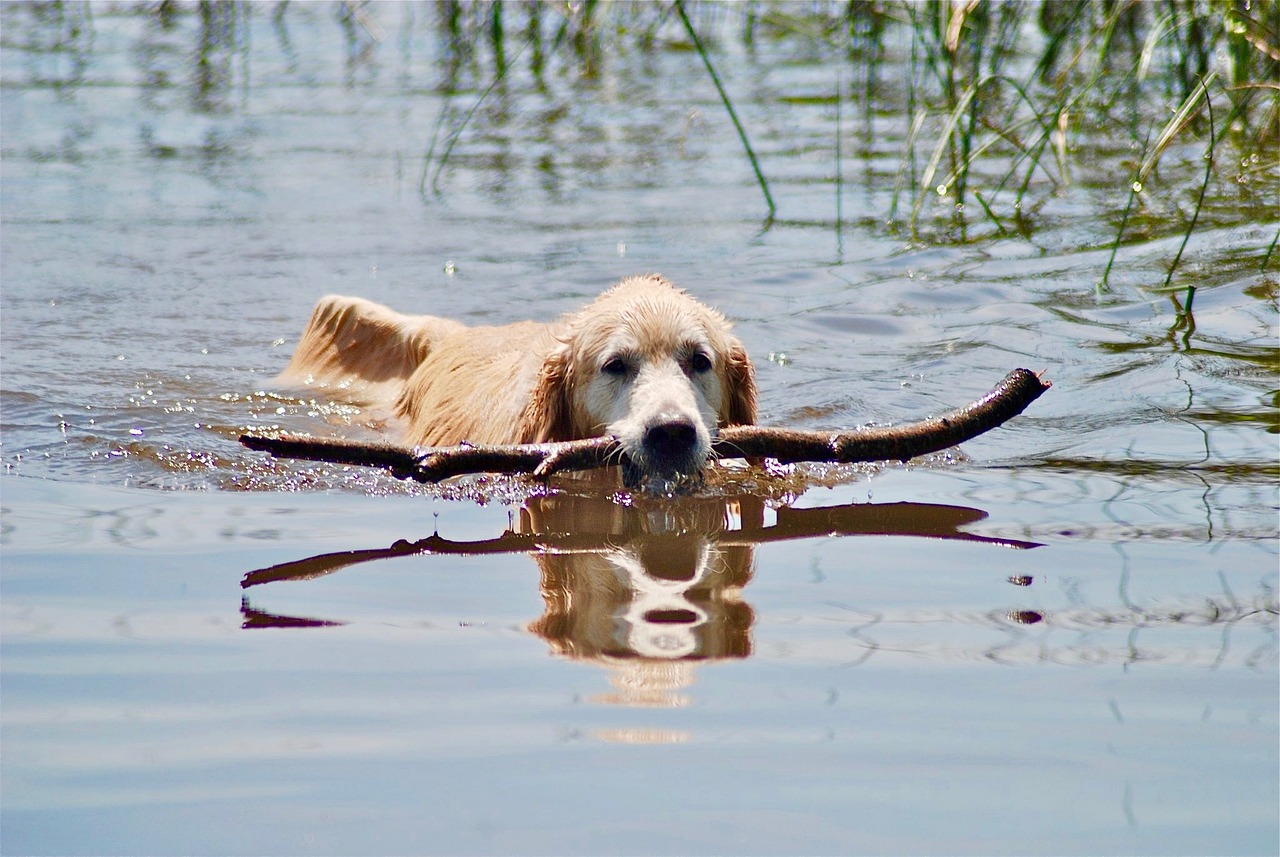
Health Considerations
Golden Retrievers, like all dog breeds, have their own set of health considerations that potential owners should be aware of. Understanding these health issues is crucial for ensuring a long, happy, and healthy life for your furry friend. One of the most common concerns is hip dysplasia, a genetic condition that affects the hip joints, leading to arthritis and pain. Regular vet check-ups, a balanced diet, and maintaining a healthy weight can help mitigate these risks.
Another significant health issue to watch for in Golden Retrievers is elbow dysplasia. This condition can cause lameness and discomfort, making it essential to monitor your dog's activity levels and seek veterinary advice if you notice any signs of pain. Additionally, Golden Retrievers are prone to certain types of cancers, particularly hemangiosarcoma and lymphosarcoma. Early detection through routine examinations can be lifesaving.
Moreover, Golden Retrievers are susceptible to heart conditions, such as dilated cardiomyopathy, which can affect their overall health and longevity. It's vital to keep an eye on your dog's heart health, especially as they age. Regular exercise not only helps maintain a healthy weight but also supports cardiovascular health.
To keep your Golden Retriever in tip-top shape, consider the following health tips:
- Regular Vet Visits: Schedule annual check-ups to catch any potential health issues early.
- Balanced Diet: Provide high-quality dog food tailored to their age and activity level.
- Exercise: Ensure they get plenty of physical activity to prevent obesity and related health issues.
- Dental Care: Maintain their dental hygiene to prevent periodontal disease, which is common in many dog breeds.
- Watch for Symptoms: Be vigilant for signs of discomfort, such as limping, excessive panting, or changes in appetite.
By being proactive and attentive, you can help your Golden Retriever lead a healthy and fulfilling life. Remember, these dogs thrive on companionship and love, so investing time in their health is just as important as showering them with affection.
Q: What is the average lifespan of a Golden Retriever?
A: Golden Retrievers typically live between 10 to 12 years, depending on their overall health and care.
Q: Are Golden Retrievers prone to allergies?
A: Yes, they can suffer from allergies, including food allergies and environmental allergies. Regular vet check-ups can help manage these issues.
Q: How often should I groom my Golden Retriever?
A: It's recommended to groom them at least once a week to keep their coat healthy and reduce shedding.
Q: Do Golden Retrievers require special dietary needs?
A: While they don’t have specific dietary needs, a balanced diet tailored to their age and activity level is essential for their overall health.
Q: Can Golden Retrievers live in apartments?
A: Yes, they can live in apartments, but they require regular exercise and mental stimulation to keep them happy and healthy.
Frequently Asked Questions
- What makes Golden Retrievers such great family pets?
Golden Retrievers are known for their friendly and gentle temperament. Their sociable nature allows them to bond well with children and adults alike, making them excellent companions for families. They thrive on human interaction and are incredibly loyal, which enhances their role as loving family pets.
- Are Golden Retrievers easy to train?
Absolutely! Golden Retrievers are highly intelligent and eager to please, which makes training a breeze. They respond well to positive reinforcement techniques, such as treats and praise, enabling them to learn commands quickly. Their trainability is one of the reasons they excel in various roles, including service and therapy dogs.
- How much exercise do Golden Retrievers need?
Golden Retrievers are energetic dogs that require regular exercise to stay healthy and happy. Daily walks, playtime, and mental stimulation are crucial for their well-being. A lack of exercise can lead to behavioral issues, so it’s essential to incorporate physical activities into their daily routine.
- What are the grooming needs of Golden Retrievers?
Golden Retrievers have a beautiful, dense coat that requires regular grooming to prevent matting and reduce shedding. Brushing them at least once a week is recommended, and more frequently during shedding seasons. Regular grooming not only keeps their coat looking great but also helps maintain their overall health.
- What health issues are Golden Retrievers prone to?
Like all breeds, Golden Retrievers can be prone to specific health conditions, such as hip dysplasia, elbow dysplasia, and certain heart diseases. Regular veterinary check-ups and a healthy diet can help mitigate these risks. Being proactive about their health is essential to ensure a long and happy life.
- How can I socialize my Golden Retriever?
Socialization is crucial for Golden Retrievers. Early exposure to various environments, people, and other animals helps them develop into well-adjusted adults. You can achieve this through puppy classes, playdates with other dogs, and visits to different places, ensuring they have positive experiences with new situations.













